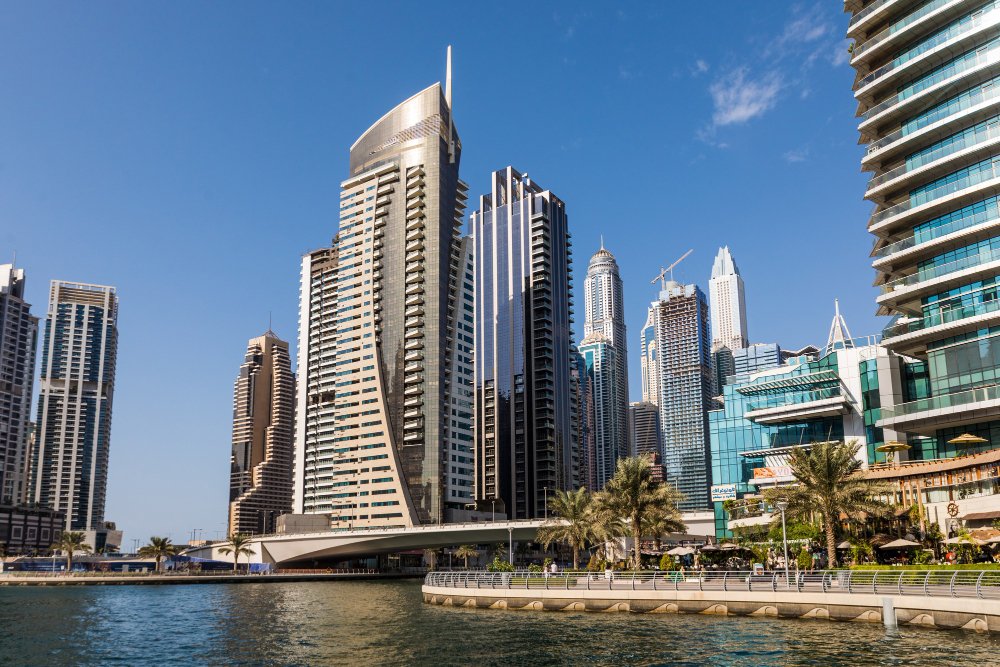Dubai Real Estate Market, May 2025: Navigating Regional Challenges with Local Strength


As of May 2025, the Dubai real estate market stands resilient amidst ongoing regional geopolitical pressures and global economic fluctuations. This Middle Eastern hub continues to exhibit robust fundamentals, underpinned by government-led infrastructure investments, a business-friendly environment, and a consistent influx of high-net-worth individuals (HNWIs) seeking safety, lifestyle, and returns.
Despite broader GCC region challenges, Dubai’s local strengths—including liberal property ownership laws, visa incentives, and world-class amenities—continue to provide a strong cushion, sustaining growth in both residential and commercial sectors.
The Middle East has faced renewed geopolitical instability in early 2025, particularly across neighboring regions. While some investors have become more cautious, others view Dubai as a safe haven, redirecting capital towards its more stable and secure real estate market.
Dubai’s neutral diplomatic stance, global connectivity, and transparent regulatory ecosystem serve to attract risk-conscious foreign investors who are disillusioned by volatility in competing markets.
Although Dubai’s economy is no longer oil-dependent, it is still part of the broader UAE and Gulf Cooperation Council (GCC) framework. The fluctuating global oil prices in Q1 and Q2 2025 have contributed to regional spending adjustments, slightly tempering government-backed mega projects in the GCC.
However, Dubai’s diversified economy—fueled by sectors like tourism, finance, logistics, and technology—minimizes its vulnerability to this specific risk, keeping its real estate sector well-insulated.
Dubai’s Department of Economy and Tourism (DET), along with the Dubai Land Department (DLD), continues to roll out incentives such as:
Golden Visas for property investors
0% tax on personal income
Flexible property ownership laws for expatriates
These initiatives are designed to attract both long-term investors and short-term speculators, sustaining transactional volumes in the real estate market.
The demand for luxury villas, high-rise apartments, and branded residences is on the rise, with buyers from Europe, Asia, and Africa showing sustained interest in:
Palm Jumeirah
Dubai Marina
Downtown Dubai
Business Bay
Jumeirah Village Circle (JVC)
High-end properties are experiencing record-breaking prices per square foot, particularly in coastal developments and master-planned communities.
Developers such as Emaar, Nakheel, Sobha Realty, and DAMAC have seen an increase in off-plan property sales, driven by:
Flexible payment plans
Zero commission deals
First-mover advantages
The off-plan segment has captured the attention of foreign investors seeking capital appreciation and early entry into high-potential developments.
Digital transformation in real estate has empowered buyers to make informed decisions via virtual tours, AI-powered property portals, and blockchain-based transaction systems. This tech-forward approach is enhancing buyer confidence, particularly among millennial investors.
High-rise apartment communities in areas such as Dubai Hills Estate, Arjan, and Al Jaddaf have seen 4–6% YoY growth. Investors favor these developments for their:
Proximity to metro lines
Mixed-use infrastructure
High rental yield potential (7–9%)
Luxury villa communities—like Tilal Al Ghaf, Arabian Ranches 3, and Sobha Hartland—continue to enjoy double-digit appreciation. Families and remote workers are opting for larger, multi-bedroom homes with outdoor space and community amenities.
Despite regional economic uncertainties, Dubai’s commercial real estate sector has rebounded significantly post-2024, with strong performance in:
Flexible co-working spaces
Boutique retail units
Logistics and warehouse spaces in JAFZA and Dubai South
E-commerce and digital startups are driving a surge in demand for flexible and scalable office solutions.
Rental prices have increased steadily across major districts:
Downtown Dubai: +9% YoY
Dubai Marina: +7% YoY
Mirdif and International City: +11% YoY
Gross rental yields range between 6%–10%, making Dubai one of the most lucrative rental markets globally, particularly in mid-market communities.
The remainder of 2025 looks optimistic for investors and developers alike. Key projections include:
Continued inflow of foreign direct investment (FDI) into real estate
Launch of new master-planned communities with sustainability at their core
Further growth in AI-driven property analytics and smart homes
Enhanced regulatory frameworks to ensure investor protection and project transparency
Dubai is expected to weather external shocks and remain a beacon for regional and global investors seeking stability, growth, and capital protection.
Focus on off-plan investments with flexible post-handover plans
Prioritize communities with upcoming infrastructure projects
Diversify across luxury and mid-income housing for balanced ROI
Integrate green building standards and smart tech to align with buyer expectations
Offer customizable payment plans and foreign-buyer incentives
Collaborate with proptech firms to digitize buyer journeys
Leverage AI-based CRMs to track investor behavior
Focus on digital marketing strategies tailored for international buyers
Offer multilingual consultancy services to expand reach across continents
In the face of regional economic pressures, Dubai has reaffirmed its status as a resilient and future-ready property market. As of May 2025, it is not merely surviving, but strategically adapting and thriving.
From smart urban planning and sustainable development to global investor appeal, Dubai continues to cement its position as a top-tier destination for real estate investment in the Middle East and beyond.